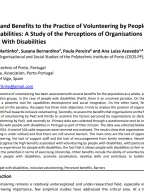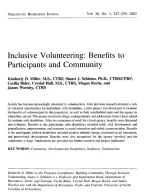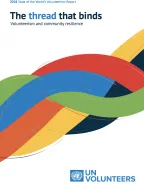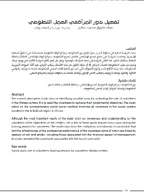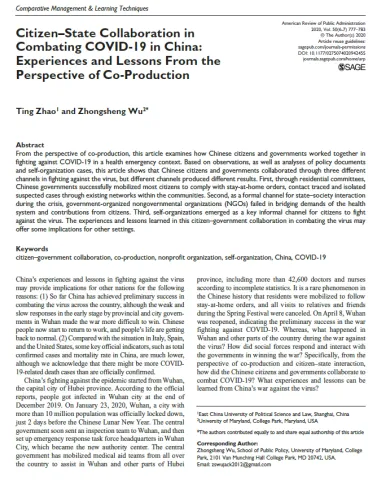
Technical paper
Citizen-State Collaboration in Combating COVID-19 in China: Experiences and Lessons from the Perspective of Co-Production
Volunteerism
Download
Fast read
- The article explores the role of community volunteers in the delivery of public health services within the context of the Covid-19 pandemic in China.
- Using policy documents and observations, the study identifies three channels through which citizens and the state partnered to deliver services during the health emergency crisis.
Summary
- From the perspective of co-production, this article examines how Chinese citizens and governments worked together in fighting against COVID-19 in a health emergency context.
- Based on observations, as well as analyses of policy documents and self-organization cases, this article shows that Chinese citizens and governments collaborated through three different channels in fighting against the virus, but different channels produced different results.
- First, through residential committees, Chinese governments mobilized most citizens to comply with stay-at-home orders, contact traced and isolated suspected cases through existing networks within the communities.
- Second, as a formal channel for state–society interaction during the crisis, government-organized nongovernmental organizations (NGOs) failed in bridging demands of the health system and contributions from citizens.
- Third, self-organizations emerged as a key informal channel for citizens to fight against the virus. The experiences and lessons learned in this citizen–government collaboration in combating the virus may offer some implications for other settings.













